There’s a LOT of misinformation and SEO myths regarding how Google treats domain names, just look at the top results in Google for SERPs like “Hyphenated Domain Names SEO”.
Even Moz gets the tone wrong:
3. Avoid hyphens if possible
If your domain name is two words (like www.examplesite.com), you may want to separate the words with a hyphen for readability: www.example-site.com. But, keep in mind that use of hyphens also strongly correlates with spammy behavior and decreases domain name readability and memorability. For that reason, generally, no more than one hyphen should be used (if any must be used at all). Source:
https://moz.com/learn/seo/domain
It’s the highlighted search result in Google spreading the SEO myth domains with hyphens are bad:
Hyphens per se are not bad, yes there was a tendency for those building SPAMMY sites to use hyphenated domain names, but that does not mean Google automatically downgrades hyphenated domains.
You are on a domain with a hyphen now (seo-gold.com), assuming you found your way here via a Google search did you even notice the hyphen and if so did you consider NOT visiting because there’s a hyphen?
Non-Hyphenated Domain Names vs Hyphenated Domain Names
Ignore the SEO myths and misinformation, it’s really easy to understand domain name SEO.
Domain names come in pretty much two flavours, hyphenated (includes hyphens -) and non-hyphenated (does not include hyphens -).
If a domain name lacks hyphens the entire domain name minus the http(s) and the domain extension will be treated as a ‘targeted’ keyword.
For example the domain: nohyphensinthisdomain.com Google would give this domains content a tiny ranking boost (the boost is really small) for the phrase nohyphensinthisdomain. Google does NOT parse any phrases from a domain like this, to Google it’s one single word, it does NOT parse this domain to “no hyphens in this domain”.
If a domain name includes hyphens the individual words separated by – will be treated as a targeted keyphrase.
For example the domain: several-hyphens-in-this-domain.com Google would give this domains content a tiny ranking boost for the keywords several hyphens in this domain. Google parses any phrases from a domain like this, to Google it’s multiple words.
All the content on this domain (https://seo-gold.com) receives a tiny ranking boost for the words https, SEO, Gold and Com, but it doesn’t mean this domain will rank for any of those words without significant SEO work on other ranking factors: content and backlinks.
That’s it, hyphens are considered word separators, without hyphens there are no word separators.
Hyphenated Webpage File Names and Image File Names
Google uses the same rules for the entire URL, so webpages (and images) like these are parsed as follows:
https://www.nohyphensinthisdomain.com/and_only_underscores/infilenames.htmlParses to: “https www nohyphensinthisdomain com and_only_underscores infilenames html”
7 words, none of which are keywords.
https://several-hyphens-in-this-domain.com/lets-avoid-underscores/they-are-not-word-separators/Parses to: “https several hyphens in this domain com lets avoid underscores they are not word separators”
15 words, most could be keywords.
Google treats : / – . as word separators
Google does NOT treat _ as a word separator
For Best Results.
- Use hyphenated domains, but not too many hyphens (one – is ideal)
- Hyphenate webpage file names
- Hyphenate image file names
- Don’t use underscores
- Avoid using the www sub-domain
- Avoid URLs with filename extensions like html, php, asp etc…
It’s a minor SEO boost from keywords parsed from a URL etc… so don’t worry if you are using www, html etc… Keep this in mind when creating new sites, new webpages and new images.
Not convinced, would you believe Google?
Matt Cutts (Worked for Google) on Underscores vs. Dashes in URLs
A dash is a hyphen :-)
Funny Non-Hyphenated Domain Names
Be careful with how non-hyphenated domains could be read, some domain names can seriously damage a brand image.
Which keywords should Google parse from these domain names (all real examples):
- therapistinabox.com : Therapist in a Box or The Rapist in a Box?
- penisland.net : Pen Island or Penis Land?
- speedofart.com : Speed of Art or Speedo Fart?
- expertsexchange.com : Experts Exchange or Expert Sex Change?
- whorepresents.com : Who Represents or Whore Presents?
- lesbocages.com : Les Bocages or Lesbo Cages?
These are real examples, some have expired (not great names).
This is assuming Google can determine meaning from a bunch of letters and only looks for English words, therapistinabox could also be parsed as “the rap is tin a box” or any combination of letters like “th erapi stin ab ox”.
Why would Google make any assumptions from a string of letters with no word separators?
Yes in theory Google could try to parse keywords from domain names, but why would it waste computational power on something so useless to it’s search engine users?
Google has the sites content (the text, the images and backlinks) to determine what the content is about, it doesn’t need to go to so much effort to determine relevance.
David Law

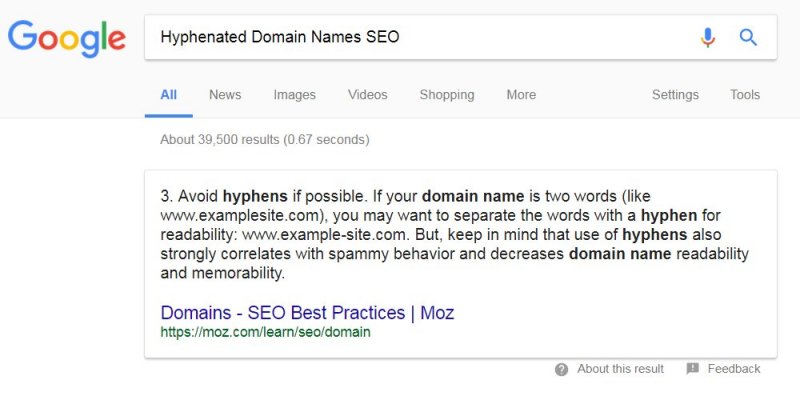

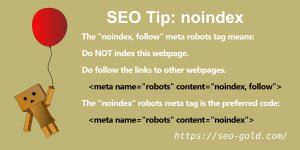
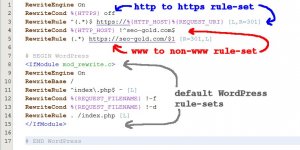

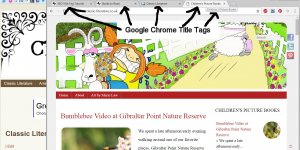
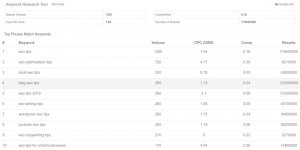


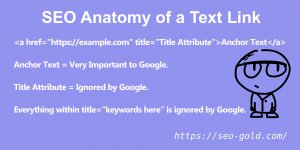



Thanks, but why did you suggest “Avoid using the www sub-domain” – is there data to support that web users dislike it?